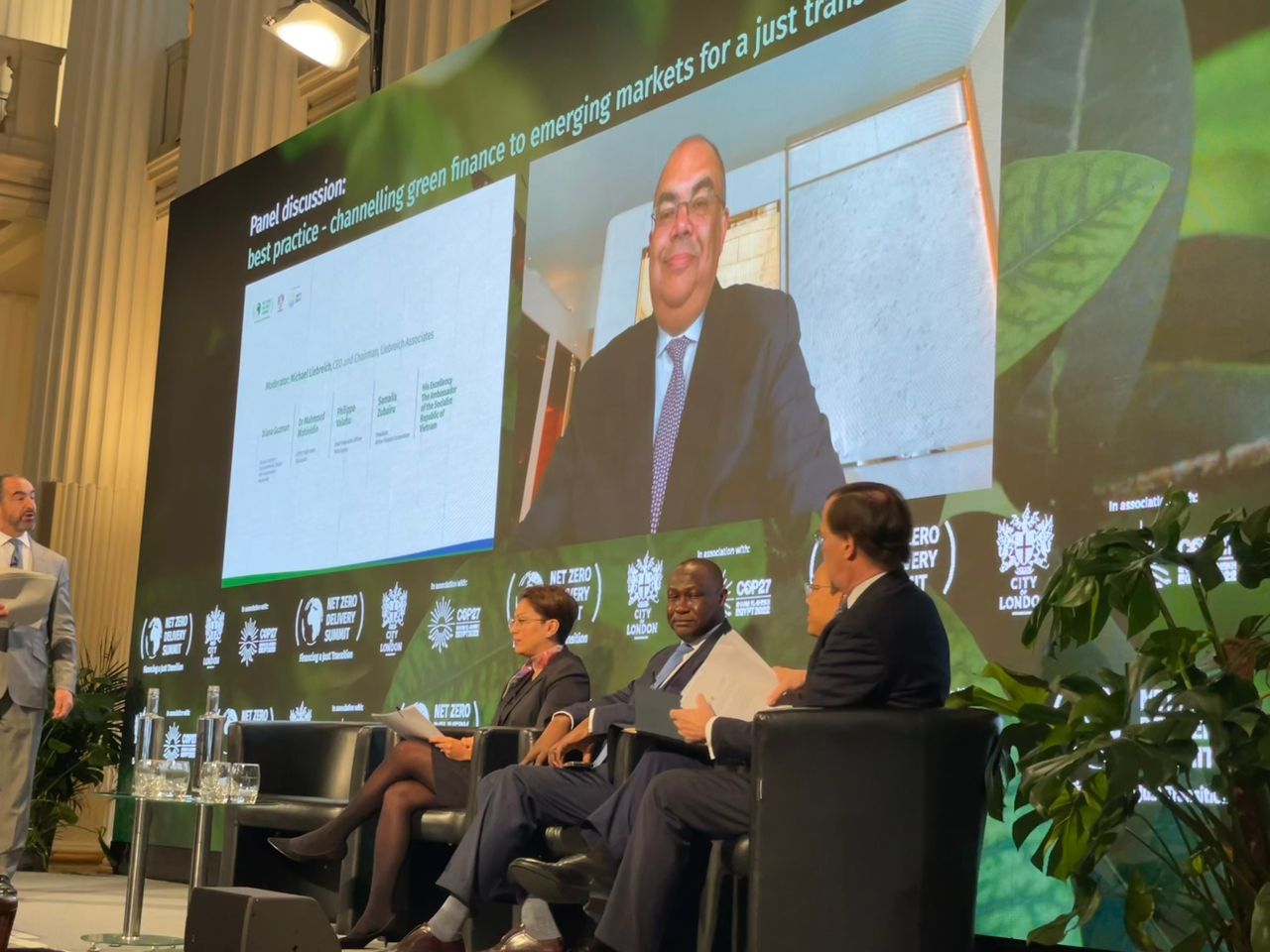
Apple halves its GHG emissions..marks Earth Day with education, action
Apple marks the 2024 Earth Day with offering opportunities for users to educate themselves on ...

Dr. Mahmoud Mohieldin, UN Climate Change High Level Champion for Egypt and UN Special Envoy on Financing 2030 Sustainable Development Agenda, underlined the importance of the private sector’s contribution to development and climate action and promoting more public-private partnerships while applying standards of Environment, Social and Governance (ESG) for companies and the private sector to prevent greenwashing.
Mohieldin called for not depending on lending as the sole financing means for financing climate and development action in developing countries, especially that some of these countries are already suffering from debt crises.
He highlighted the importance of activating the role of technology in finding and implementing climate solutions, especially in the energy sector.
He made the remarks during his participation in a session entitled “Channelling Green Finance to Emerging Markets for a Just Transition” within the events of the “Net Zero Delivery Summit 2023: Financing a Just Transition Agenda”, organized by City of London in collaboration with COP27 presidency, in which Sherif Kamel, Egypt Ambassador to UK, made a speech on behalf of Ambassador Sameh Shokri, Minister of Foreign Affairs and COP27 President. Mohamed Maait, Minister of Finance, participated also in the summit.
He said that climate and development action priorities in developing countries should be taken into account when it comes to identifying financing means and channels.
The session witnessed the participation of Diana Guzman, Prudential plc Group Director ESG, Samaila Zubairo, President of Africa Finance Corporation, Nguyen Hoang Long, Ambassador of Vietnam to London, and Philippe Valahu, Chief Executive Officer of The Private Infrastructure Development Group (PIDG).
Mohieldin explained that the annual $100 billion pledged by the developed countries to finance climate action in the developing countries in 2009 has not been fulfilled so far. It has not also been either coordinated with developing countries or placed in the context of what these countries need to implement their climate action.
He stressed that climate action in developing countries is part of the development process as a whole, underscoring that developing countries have to fix their finance and investment structures in a way that help reduce risks and encourage investors and private sector as well as IFIs and MDBs to participate in financing climate and development projects in these countries.
“It is necessary to balance financing decarbonization and adaptation, and to focus on the actual implementation of climate action and finding the practical solutions to deal with constraints of climate projects.” Mohieldin said.
“For this pragmatic approach, the Egyptian presidency of COP27 in collaboration with UN regional economic commissions and HLCs launched the Five Regional Roundtables Initiative with the aim of finding a pipeline of investable, bankable and implementable climate and development projects.” Mohieldin stated, adding that a big number of projects have been discussed and shortlisted into 120+ projects around the world that can be implemented immediately if there is serious interest in funding and implementing them.
Mohieldin highlighted the need of the global financial structure to be reformed in a way that allow larger and more efficient participation of IFIs and MDBs in financing and implementing climate and development projects.
Apple marks the 2024 Earth Day with offering opportunities for users to educate themselves on ...
LG has decided to mark the 2024 Earth Day with a 3D anamorphic digital out-of-home ...
International Cooperation Minister Rania Mashat said Egypt plans to increase the percentage of green projects ...


اترك تعليقا